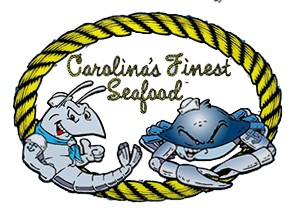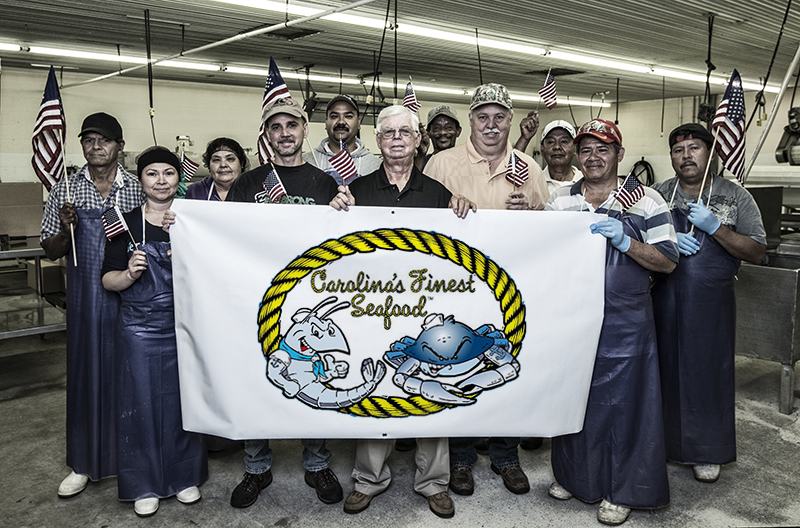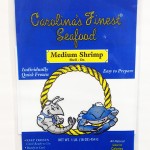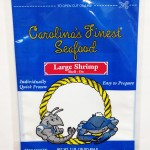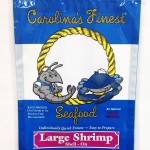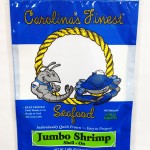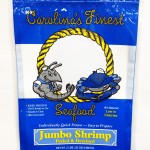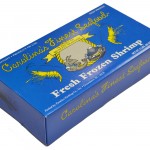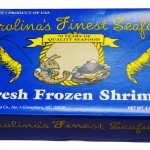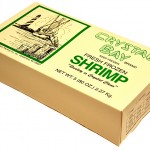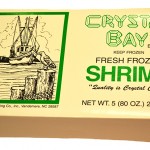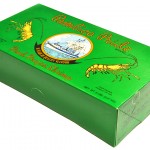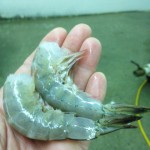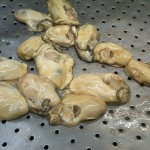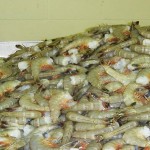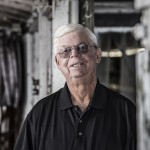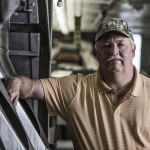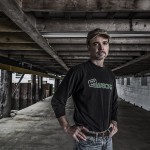
Wild American Shrimp Supplier
Contact
Pamlico Packing CompanyDoug Cross
(252) 745-3688
66 Cross Road
Grantsboro, NC 28529
pamlicopacking@gmail.com
www.bestseafood.com
Quick Facts
Year founded: 1941# of employees in peak season: 24
# of family members working in the business: 4
Product type(s): Brown, white, pink. Head on, headless, easy peel, peeled, deveined and tail on, peeled to order, IQF, block frozen, fresh.
Capacity (pounds per day): 55,000
Square footage of facilities: 20,000
Interesting fact about the business: Pamlico Packing Co., Inc. was one of the original oyster processing plants opened in North Carolina during World War II. A railroad line was built to service the Vandemere waterfront so oysters could be offloaded from schooners directly into boxcars. One of the most famous trawlers at Pamlico Packing Co., Inc. was the “Clara,” which was a World War II “sub chaser” that was later converted to a commercial fishing trawler.
Product brand names: Carolina’s Finest Seafood, Pamlico Pride, Crystal Bay
Pamlico Packing Company is one of North Carolina’s premier processing operations, as well as a top supplier of specialty seafood products to various markets all along the East Coast. Bountiful harvests of shrimp, flounder and Atlantic Blue Crab are pulled seasonally from the state’s Pamlico Sound, the nation’s largest lagoonal estuary and second in size only to Chesapeake Bay.
The business is comprised of two plants: a waterfront property in Vandemere, and another in Grantsboro, which is 12 miles inland. Ed Cross, owner, 82, and his two sons, Don, secretary/treasurer, 50, and Doug, vice president, 52, have owned and operated the plant since 1976. However, the history of the Vandemere facility goes back to 1941 when the Holton family founded the company.
Earl Holton ventured into the seafood industry during a time when oysters took center stage. Due to the abundant supply and strong demand, it was a natural fit to open an oyster shucking plant right on the Bay River, which also happen to be one of the original oyster plants opened in North Carolina during World War II. It didn’t take long before loaded down schooners caught wind of the new business and made their way to the company docks.
“Historical photos show schooners full of oysters lining the harbor just waiting to be unloaded,” Don says. “This industry was a huge part of the town’s commerce so a railroad line was built to service the Vandemere waterfront so oysters could be offloaded from schooners directly into boxcars. The railroad line used to run right near the plant by the docks and they would back rail cars down here, load them with oysters, and then take them out.”
Don says prior to World War II, there wasn’t a dedicated shrimp fishery on the East Coast because the concept of eating shrimp was somewhat of a foreign idea. Fishermen thought they got in the way and locals even called them “bugs.” But, thanks to some entrepreneurial thinking and the national need for more protein sources, Earl helped pioneer the shrimp fishery in the area and went from packing oysters and fish to also packing shrimp.
For more than three decades, Earl’s plant thrived year-round from seasonal harvests, but when he was in his late 60s, he started to look for a successor to take over the business. And that’s when Ed came into the picture.
Ed always had a love for being on the water, so when it came time to retire from his tile and glass business in Raleigh, North Carolina, he knew exactly what he wanted to do: buy a couple of shrimp boats for recreational purposes and just enjoy life on the Vandemere waterfront with his wife and two boys.
“My love for the water was the whole thing,” Ed says. “I just wanted to go shrimping.”
He started trawling the Pamlico Sound and made a lot of connections with fishermen, and gained a little wisdom and insight into the industry that was now right in his backyard. Little did he realize how this enjoyable pastime would change his family’s life.
One key industry connection he made was with Earl Holton, who Ed says “was a real character.” Unbeknownst to Ed, Earl had been diagnosed with terminal cancer and he was looking for someone to buy the business quickly. Even though Earl knew Ed had no experience in the seafood industry, he felt his strong business background was enough, so the persuasive chats began.
“For about a year, he would say, ‘Why don’t you buy this place,’” Ed says. “I would tell him, ‘I don’t know anything about this shrimp business, Mr. Earl. I’m just enjoying what I’m doing on the boat.’ He wanted this business carried on and I think he felt I could do it.”
Next thing you know, Ed was the owner of a processing plant. Some might say a radical change in career paths is a mid-life crisis, but in Ed’s case, it was nothing more than a mid-life adventure. At 45-years-old, he jumped into a new industry, learned everything he could, and took advantage of the connections he had already made.
“Mr. Earl taught me a lot about the ethics of the business like dealing fairly with the fishermen, and the practical aspects of the business like buying and selling because I had no clue how to buy or sell fish or shrimp,” Ed says. “I also had made friends on the water and knew who the best captains were. I went out and bought boats, and then went to those guys and got them to come and work for me.”
Earl had two daughters and treated Ed like a son. It wasn’t until a year after Ed bought the plant when he found out his mentor had passed away. One of Earl’s daughters had worked for the company for years and she stayed on to work for Ed, which was a tremendous asset in the learning curve of getting acclimated to a new business environment.
Pamlico Packing Company was a fairly small operation under Earl’s direction, and even though Ed started in a new industry late in life, the vision he carried for the business was impressive. He added a crab plant and fish processing room to the original plant and acquired a second plant in 1995 brought substantial growth in size, services and products. At last count, the Cross family has owned 72 different trawlers over the years. The most famous trawler at Pamlico Packing was the “Clara,” a World War II “sub chaser” converted to a commercial fishing vessel.
But most importantly, Ed’s risk on a new career provided an invaluable opportunity for a father to pass on a successful seafood legacy to his sons. When Ed moved his family to the North Carolina coast, Don was in fifth grade and Doug was in seventh, so by the time they were in high school, weekends and summers were spent doing things like unloading boats and fishing hundreds of crab pots in the Bay River and the Pamlico Sound.
The brothers have fond memories of growing up in the business, each with a particular remembrance of their “ah-ha moment” when it came time to each decide if Pamlico Packing Company was going to be a lifetime commitment. When Don was 21, he and his wife had their first child, and that’s all it took for him: “It’s a deep commitment you have to make,” he says. “When you come from a family business, it’s not just about you, it’s about all the family. You don’t just walk away from it.”
For Doug, it took a little more convincing. After going to college for a year (and “having lots of fun”), he decided to head back home to help his dad, but wasn’t sure what part of the business he wanted to be involved in. One bad experience on the stormy seas solved that problem real quick.
“I was working on one of our boats, and we took it out for a trip, but when we were coming back, we got caught in a hail gale,” Doug says. “It was 20- to 25-foot seas, and it was beating my brains out, and I got sick as a dog. I told the captain, ‘If I ever get back to that fish house, I’ll be daddy’s No. 1 man, and I won’t ever leave again!’ And that’s what I’ve done ever since.”
Ed is proud of his sons and says the “ungodly hours” they all have put in over the last three decades have made the company what it is today. When it came to shrimp season, it was all hands on deck during the weekends.
“Always in shrimping, the work was on Friday and Saturday,” Ed says. “The fishermen could start towing in the sound at sunset on Sunday afternoon and they had to quit towing at sundown on Friday afternoon. The sound was closed for the rest of the time. We had a complete kitchen and bunk room at the plant, so many nights all three of us might work till 12 or 1 o’clock at night, take a shower, lay down for three to four hours, and go right back at it the next morning.”
Pamlico Packing Company is bountifully blessed by Mother Nature’s abundant provision found off the North Carolina coast, but Mother Nature also has tested the company’s resiliency. Since the Cross family has owned the plant, they have been hit by a dozen major storms, but Hurricane Irene in 2011 was the most devastating when a 12- to 14-foot storm surge put the facility out of operation for two years. It forced the corporate offices to be moved to the Grantsboro plant.
What keeps them coming back? “For us, it’s just a life commitment,” Don says. “You have to love this business or you just wouldn’t do it.” Doug agrees: “To be in this, you gotta love it. If you don’t love it, you’re not going to be in it.”
This commitment is reflected in the standard of excellence the Cross family has maintained for more than 30 years by offering a quality product that continues to earn the trust of customers — a reputation Earl Holton established in 1941. Pamlico’s mission statement is short and simple: “Deliver only the highest quality fresh and frozen seafood from North Carolina to our customers at a competitive price.”
Under their label, Carolina’s Finest Seafood, a complete line of specialty seafood products — wild caught shrimp, crabs and oysters, as well as international commodities such as flounder, tilapia, catfish, whiting and swai — is available for retail, wholesale, and “all types of restaurants” through the food service industry. A number of grocery stores also carry their full line of fresh, ready-to-eat seafood salads, spreads and dips.
In South Atlantic fisheries, a broader selection of products is available because of the varying seasons in the industry: “The bulk of Gulf companies tend to be almost exclusive shrimp producers and processors,” Don says. “As you get around Florida and come up here, especially in North Carolina, we wear more hats. We’re more diverse, but it’s because of necessity.”
The benefit of this allows Pamlico to be “vertically integrated all the way from the boat to the retailer,” Doug says. “We’re large enough to handle your needs, but small enough to pay attention to the details. Custom orders and programs are our greatest strengths that prove to be very valuable to our customers.”
In addition to packing under their label, shrimp can be custom packed under retailer labels. The abundance of brown, white and pink shrimp harvested in North Carolina waters is highly requested from customers (local, regional and national) because of the unique flavor profile that Don says has a “buttery, richer” flavor, and is free of any iodine taste.
The HAACP-certified plant specializes in traceable, quality controlled, tailored programs that can fill the niche for whatever retailers need: “We’re real sticklers for quality,” Don says. “We can IQF the shrimp for them, we can send it to them fresh or block frozen, we can do a custom hand-peeled and deveined. We are a custom plant, and everything is peeled to order.”
This industry is all Don and Doug have ever known, so the passion that backs their dedication to quality is immeasurable. Ed is now retired, but he knows the company is in good hands with his sons. Although, not a day goes by when he doesn’t look at the Pamlico Sound from his home and recall the best years of his life: “Being involved in this industry is the most enjoyable thing I have ever done,” Ed says. “I would be at work at the plant every morning between 4:30 and 5, and work sometimes until midnight, seven days a week. It was enjoyable and I loved it. It’s hard to get it out of your system.”


